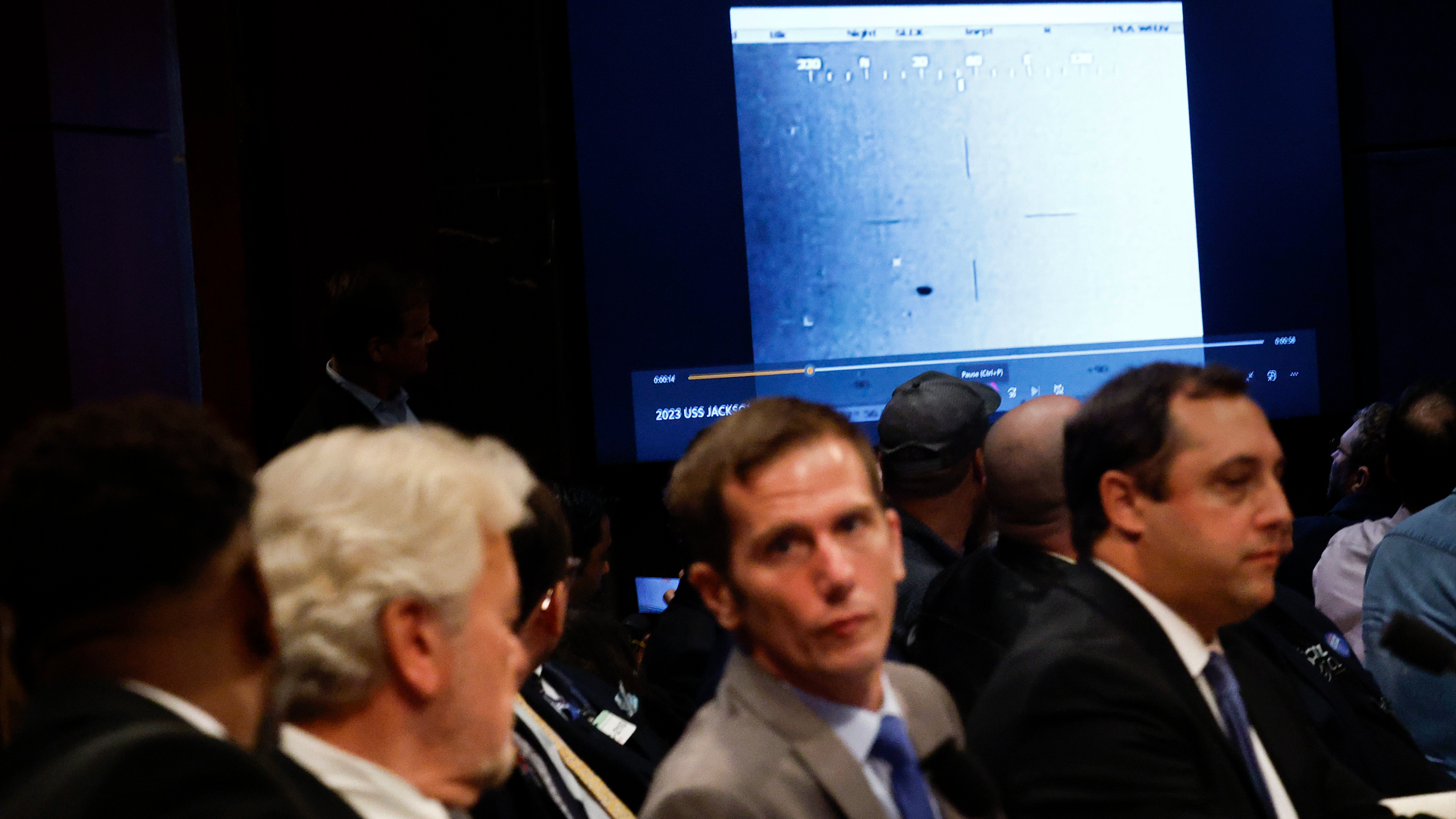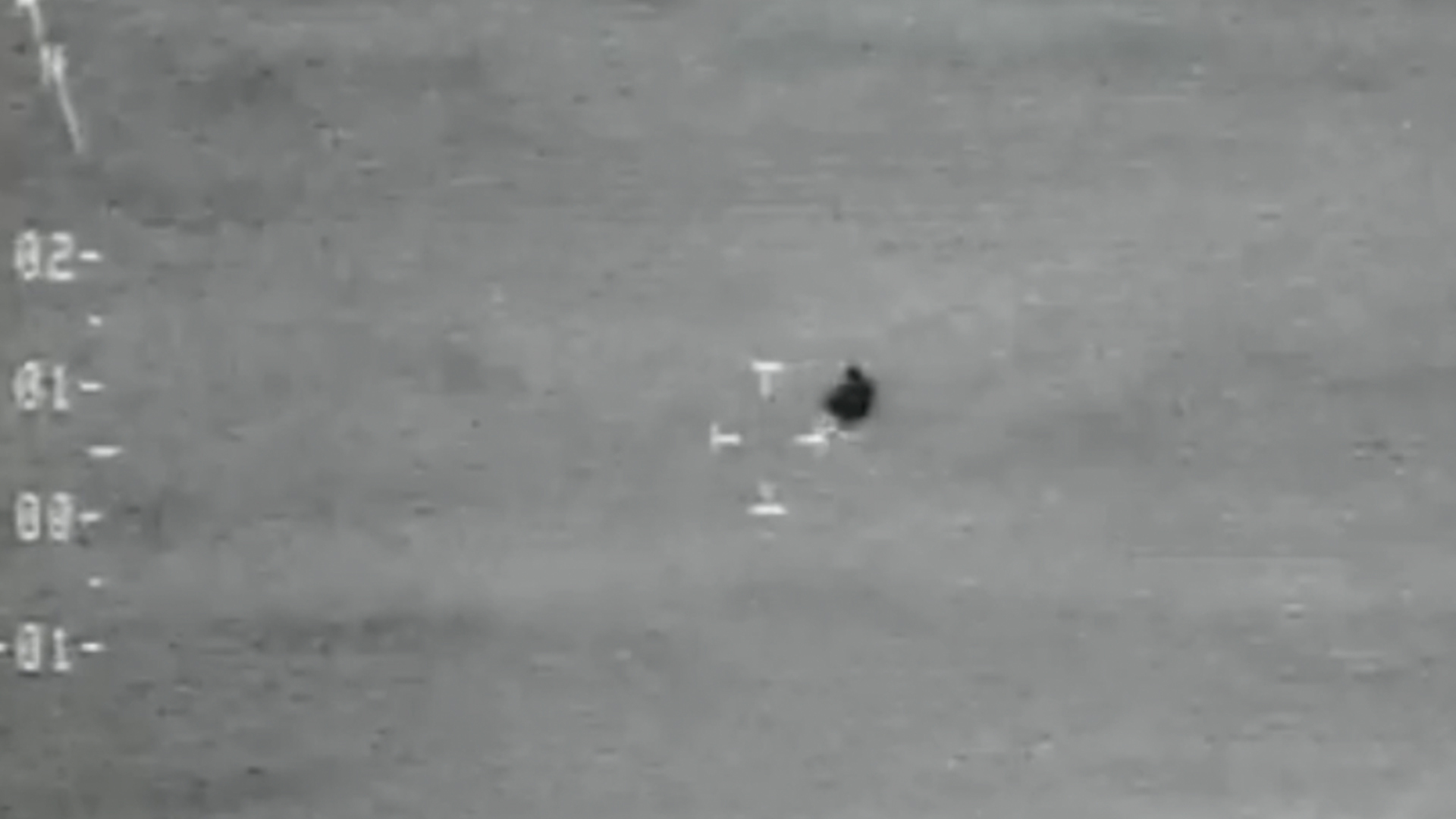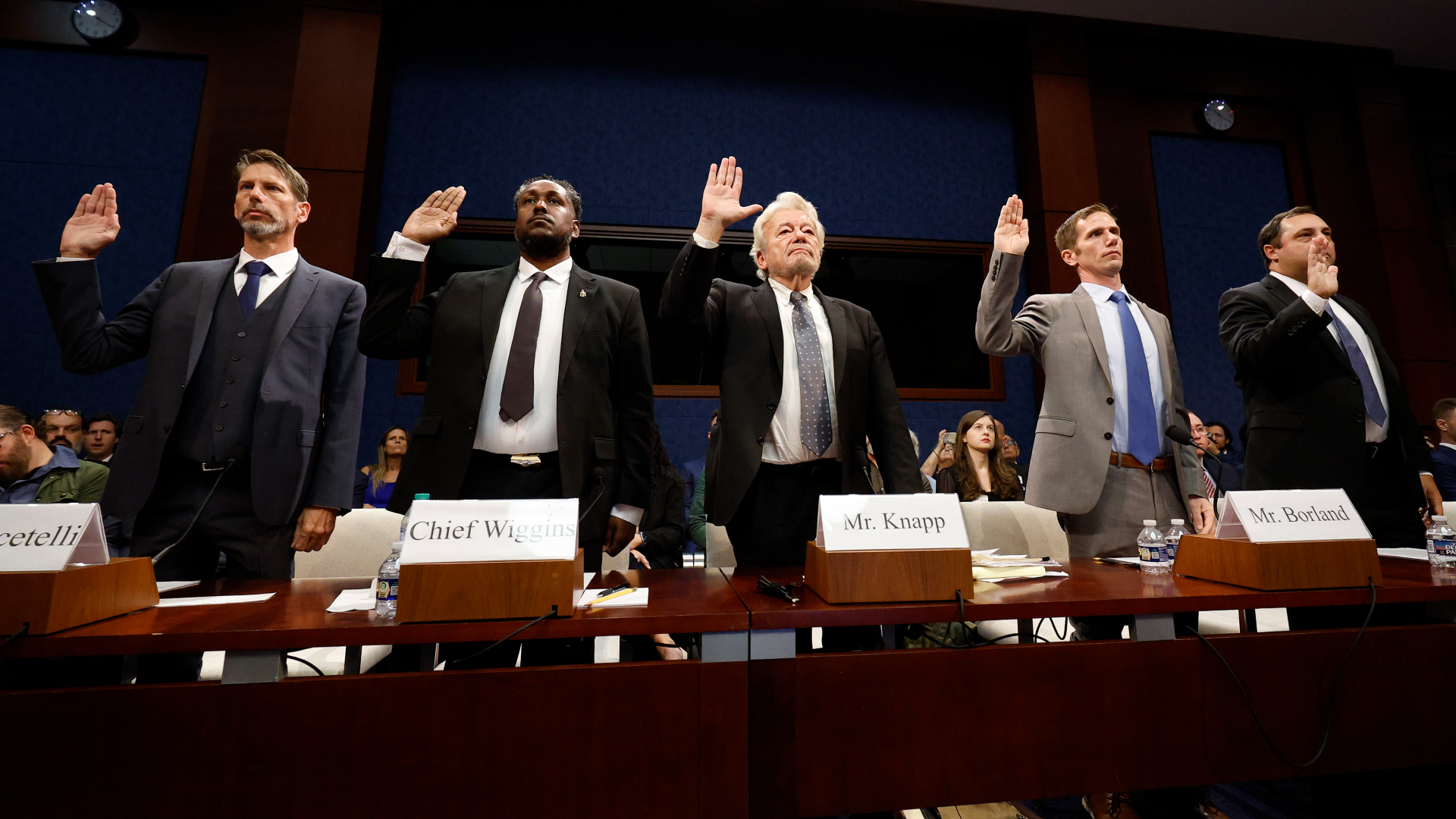
UAP witnesses criticize Pentagon UFO office in Congressional hearing for 'using science and coming up with answers'
"This is about national security, government accountability, and the American people's right to the truth."

How can the U.S. government restore public trust regarding unidentified anomalous phenomena (UAP) through transparency and offering whistleblower protections?
That was the core, mind-boggling question behind a Sept. 9 congressional House of Representatives hearing, held by the Task Force on the Declassification of Federal Secrets.
Representative Anna Paulina Luna (R-FL) is chair of that task force, swearing in witnesses that under oath discussed their experiences and knowledge about UAPs, a rebranded term attached, deserved or not, to unidentified flying objects (UFOs), as well as unidentified objects or phenomena in Earth's bodies of water or space.
Secrecy, stigma, dismissal
For too long, UAPs have been "shrouded in secrecy, stigma, and in some cases outright dismissal," Luna said in her opening statement.
"Today, I want to state clearly: this is not science fiction or creating speculation. This is about national security, government accountability, and the American people's right to the truth," said Luna. "Future generations will look back on this moment and ask what we did when presented with the unknown. Did we look away, embarrassed or afraid? Or did we pursue the truth with courage? I intend to be on the side of truth, transparency, and accountability," the lawmaker stated.
A transcript of the hearing and witnesses' prepared testimonies can be read on the U.S. House of Representatives' website.
Space.com asked several experts from leading research groups on UAPs/UFOs concerning the hearing and their take-away thoughts.
Breaking space news, the latest updates on rocket launches, skywatching events and more!
Wanted: nitty-gritty details
"The military witness reports were very good," said Robert Powell, executive board member of the Scientific Coalition for UAP Studies in Austin, Texas.
While it may not be apparent to the public or congress, Powell said that anyone who has studied the history of the subject knows that there have been hundreds of such reports by military witnesses that are equally as good.
So how do we move forward?
"Unless Congress is willing to push for the nitty-gritty details" by obtaining full videos, interviewing pilots involved in UAP incidents, and other reported events, "we will not progress," said Powell.
Powell said, in his view, the military will never release the necessary information to establish the presence of a non-human intelligence.
"That's because of their concerns for national security and whether one of our adversaries might learn something from UAP that they could use militarily against us," Powell said. "The resulting tendency to silo all information on UAP prevents moving forward with learning more. Only if Congress allocates funding to the scientific community and academia to study UAP will we make any progress," he concluded.
Science above all
"I find it frustrating that they, rightly, reiterate the importance of the role science can take in figuring out what is behind UAP, but do not apply it in these hearings."
That's the outlook from Alejandro Rojas, a long-time UFO journalist and a consultant to Enigma, a UAP/UFO sightings alert network.
"We have years of anecdotal sighting reports and claims of hidden government knowledge about alien visitation. What we need is evidence," Rojas said.
Rojas added that he found it also trying that the one organization that has been using science, the Pentagon's All-domain Anomaly Resolution Office (AARO), was pummeled in the hearing, without being represented.
"Having worked in the UFO field for so long, I am sympathetic to their [AARO's] effort. They have shown each step of their work analyzing previous videos, and although it is unpopular to demystify some of these reports, their scientific analyses have been sound," he said.

Preconceived notions
At the recent hearing, "the gripes of committee members came across as being frustrated with the organization that is using science and coming up with answers," sensed Rojas. "However, because they dislike the answers, they blame AARO, when in fact they genuinely do not want scientific analysis to dismantle their preconceived notions."
In the end, Rojas found the hearing disheartening.
"Instead of focusing on real issues and truly championing scientific investigation, the hearing comes across as a very political back-and-forth between the Oversight Committee and the Pentagon," said Rojas. "What gets lost is what we actually need, and that is data gathering and scientific evaluation of that data."
As a consultant with Enigma, Rojas said the group is collecting hundreds of reports, many with videos.
"What we need is a robust, transparent effort to analyze what we are collecting, and to build better sensor systems to gather more and better data on UAP," said Rojas. "If extraterrestrials are visiting us, it is not just the military that would be seeing them."
Credible and intriguing
Avi Loeb, head of the Galileo Project at Harvard, and director of the Institute for Theory & Computation, said he found the first-hand testimonies at the hearing "to be credible and intriguing."
Loeb's Galileo Project is an endeavor to bring the search for extraterrestrial technological signatures of other star folk from "accidental or anecdotal observations and legends" to the mainstream of crystal-clear, confirmed and systematic scientific research.
"I salute congresswoman Luna for chairing this important discussion within the Task Force on the Declassification of Federal Secrets in the U.S. Congress," Loeb said.
But does such a congressional hearing restore public interest in UAP?
"This discussion is not a matter of public relations in a popularity contest, but instead a topic of great relevance for national security and science," responded Loeb. "Once we all see credible evidence about the nature of UAP, we will be able to get to the bottom of it and everyone would agree on what it means."
Best path to new knowledge
Data collection is the goal of the Galileo Project under Loeb's leadership.
Does the astrophysicist believe that the U.S. government is hiding information? He replied that "as a scientist I respond to evidence and not to what people tell me. Scientific evidence is our best path to new knowledge."
The simplest way to tell the difference between a dogmatist and a genuine scientist, Loeb said, is to flood both of them with scientific-quality data.
"Whereas the dogmatist will shove anomalous data under the carpet of traditional thinking, an open-minded scientist will be thrilled to learn something new with an underlying sense of humility," advised Loeb. "Not only is nature more imaginative than we are, but it also does not care whether we figure it out. The insistence that everything in the sky is either icy rocks or human-made technologies will not rid us of cosmic neighbors, if they exist out there," he concluded.
Tone and testimony
"Overall, I was pleased with the tone and testimony in the hearing from the witnesses, and the often excellent questions from the Representatives," said Mark Rodeghier, president and scientific director of the Center for UFO Studies in Chicago, Illinois.
"The hearing hopefully provided more impetus to pass the crucial legislation necessary to answer questions we have about possible US government/contractor involvement with UAP that has been hidden all these years," said Rodeghier.
Rodeghier said the witnesses added additional experiences on the record of both UAP sightings and how the aftermath of those has been handled by the military, including treatment of those wishing to speak publicly.
Crucial legislation
Beyond moving Congress to pass the bills, Rodeghier advised getting witnesses into a SCIF, short for Sensitive Compartmented Information Facility. Located several levels beneath the U.S. Capitol, a SCIF is where lawmakers and witnesses hold closed interviews, far from the prying eyes of the public.
"I'm not sure what can be done with it [those interviews], but having it available is important," said Rodeghier.
Another Rodeghier recommendation is to have the head of AARO in a hearing this fall now that he has been on the job for a year. Lastly, there's need to work on getting the appropriate government agencies to provide modest funding for UAP research, which continues to be unavailable, he said.
Deep difficulties
Michael Cifone is the founding executive director of the Society for UAP Studies, based in Los Angeles, California. The group's mission is not to promote a single narrative but to advance careful scholarship, develop educational frameworks, and advocate for standards of evidence and data transparency.
The recent Congressional hearing on UAPs underscored, once again, "both the importance of the issue and the deep difficulties that have hampered its treatment for decades," said Cifone.
That handling of the topic within the government — whose aim since at least after World War II has been increasingly obsessed with national security and maintaining US military and strategic dominance, feels Cifone, "are guiding principles that are ultimately at odds with the inner operating directives of the sciences themselves: free, open, and therefore democratic exploration of self and world."
Mixed pool
"The UAP problem is not a mystery with one answer, but rather a somewhat unstable and chaotic amalgam of many overlapping realities, complicated by the unfortunate facts of the modern bureaucratic national security state," is a view that Cifone basically endorses.
"UAP reports are not a monolith," Cifone advised.
Instead, they are a mixed pool consisting of: (1) misidentified U.S. black projects, where cutting-edge aerospace programs are understandably shrouded in secrecy; (2) adversarial drones and surveillance platforms, which represent a genuine national security challenge; (3) a large number of ordinary misperceptions of balloons, satellites, or atmospheric phenomena; and (4) a small but stubborn residue of anomalous cases that resist explanation.
"This mixture makes the phenomenon difficult to study, not because of some grand cover-up, but because of the dysfunctional way information is handled inside the government," Cifone said.
Are we up to the task?
The UAP hearing, for all its frustrations, said Cifone, "at least signaled that Congress is beginning to take seriously the structural problems that have long clouded this issue."
From a safety standpoint, the "mixture hypothesis" is particularly important, said Cifone. If even a fraction of UAP reports involve advanced adversarial drones or unsafe incursions into U.S. airspace, then society is faced with an aviation and national security challenge that demands systematic response, he said.
"Let's see what data and frameworks we can establish that can handle UAP and associated phenomena/claims, and what philosophical/conceptual challenges remain, and if we're up to the task," Cifone said.
And for the other claims — crashes, bodies, and so on, Cifone concludes, "sure, but where's the beef?"

Leonard David is an award-winning space journalist who has been reporting on space activities for more than 50 years. Currently writing as Space.com's Space Insider Columnist among his other projects, Leonard has authored numerous books on space exploration, Mars missions and more, with his latest being "Moon Rush: The New Space Race" published in 2019 by National Geographic. He also wrote "Mars: Our Future on the Red Planet" released in 2016 by National Geographic. Leonard has served as a correspondent for SpaceNews, Scientific American and Aerospace America for the AIAA. He has received many awards, including the first Ordway Award for Sustained Excellence in Spaceflight History in 2015 at the AAS Wernher von Braun Memorial Symposium. You can find out Leonard's latest project at his website and on Twitter.
You must confirm your public display name before commenting
Please logout and then login again, you will then be prompted to enter your display name.

